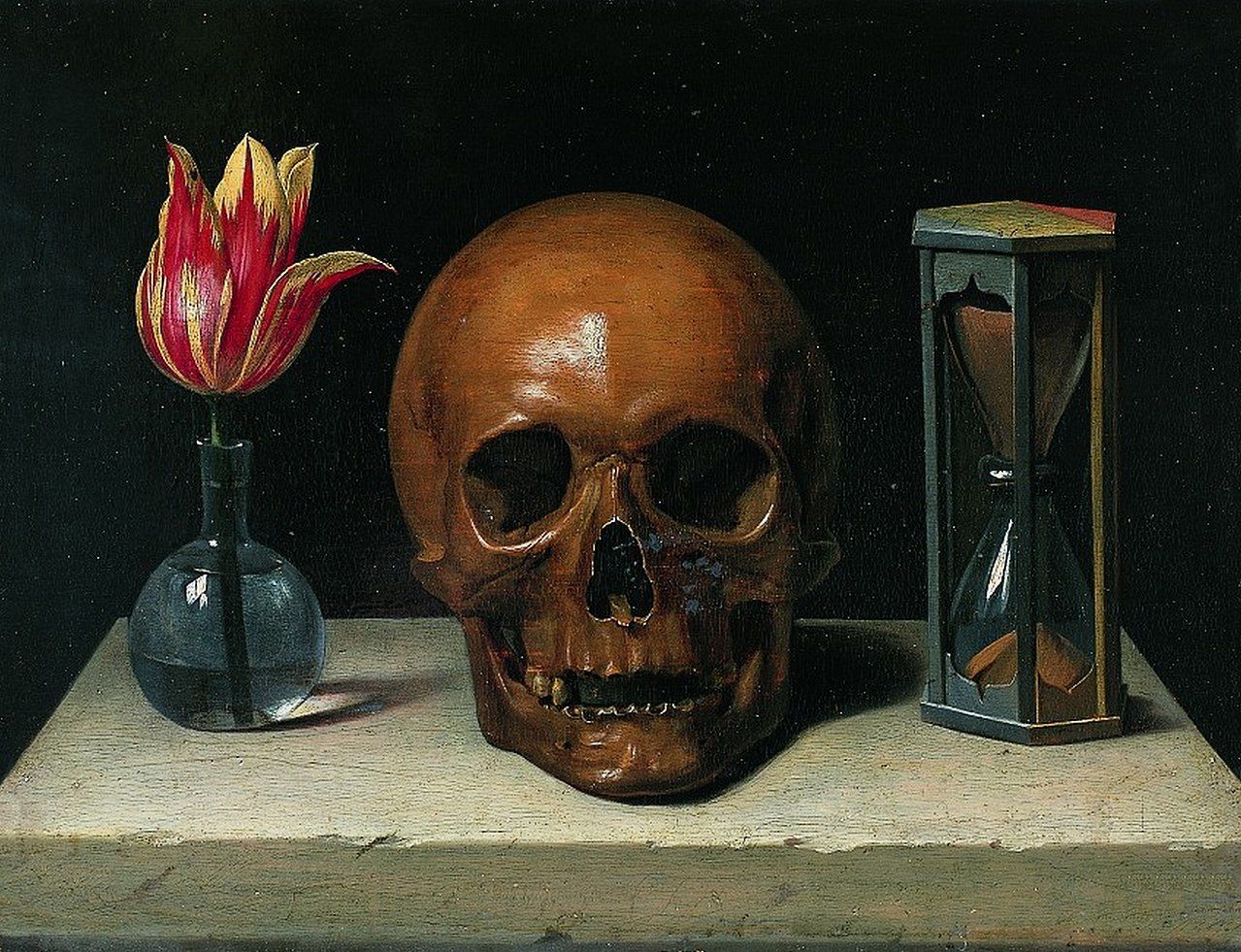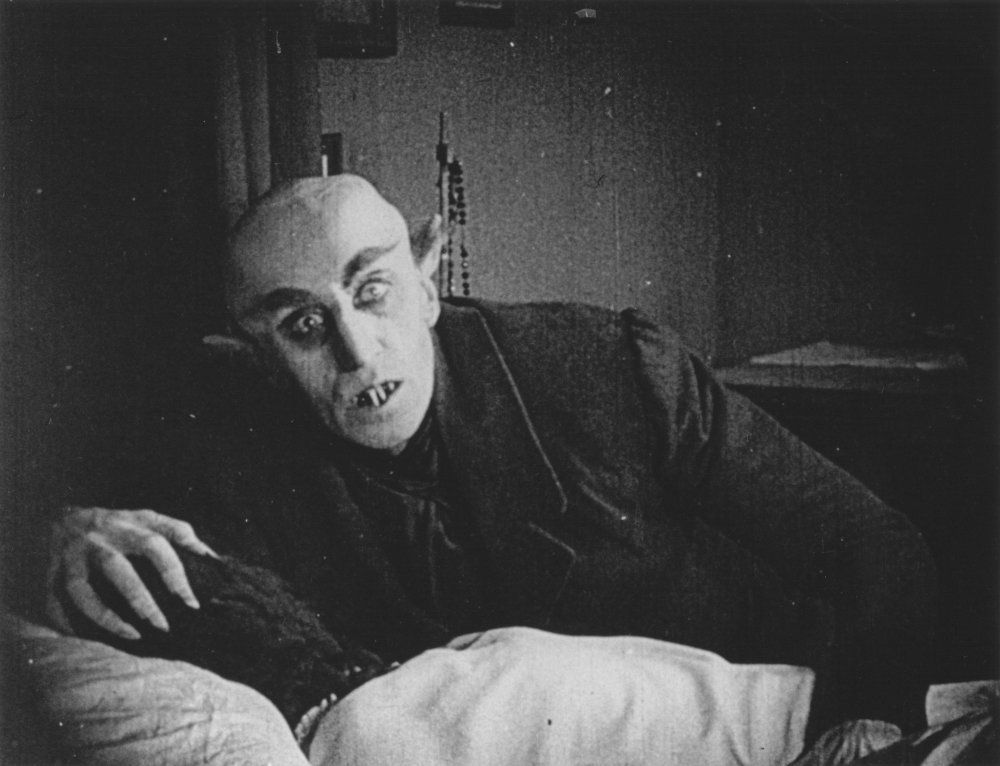On Aging as an Imperative, or same as it ever was?

This essay was prompted by several things. The first was this semi-dismissive comment I tweeted out regarding the news that the Kingdom of Saudi Arabia would be funding research to halt and possibly reverse aging:
The notion that aging is a kind of illness requiring a cure is one of the most bizarre beliefs that putatively intelligent people hold. https://t.co/mZnAyp5SCq
— David Polansky (@polanskydj) June 11, 2022
The second was the responses I received—ranging from bemusement to outrage— demanding that I elaborate my thinking here. How could this possibly be bad news?
I ended up writing this out long-form, as the other medium doesn’t exactly lend itself to this sort of thing. This is really not intended as a putdown of Twitter, which after all started the conversation, though maybe that’s a good way of thinking of the site generally: good for sparking discussions, but not so good for having them.
In any case, the assumption held by those advocating this research seems to be something like this: aging is a disease, almost a curse—one we only accept because we cannot imagine a cure or even imagine it as being something that one could cure. Meanwhile, the rejection of a potential cure represents a superstitious legacy of a demon-haunted world. It is either a religious holdover—itself perhaps a superstition—or the sentimental clinging to an incoherent notion of the human that derives from mere tradition, not reason. It is, in other words, the latest equivalent of Christian Scientists rejecting the awesome blessings of modern science and medicine, because it comes not directly from their own god.
This position is obviously not without its appeal, though I don’t agree with it. But it's not simply that I'm opposed to the idea of indefinitely extending our lifespan (though I am). I also disagree with the mode in which the above argument is usually put forward. For this seemingly straightforward and almost naïvely direct argument is actually making a number of normatively and philosophically loaded assumptions, even while distancing itself rhetorically from normative claims in favor of “objective” scientific commitments.
First it assumes that health is not simply good, which is not a difficult position to maintain, but that it is paramount. That no competing claim on our preferences could take precedence. The pursuit of health thus takes on a moral imperative. It assumes further that the preservation of health at any number of costs is desirable and fully compatible with what it means to be human. And it finally assumes that, owing to important functional similarities, aging and death are not meaningfully distinct from disease. Any of these is perfectly arguable, but none is strictly-speaking a scientific assumption; these are philosophical assumptions posing as neutral science.
The more interesting question to my mind, which possibly avoids these assumptions, is whether we can cure the many ailments—from weakened joints to Alzheimer’s—that go hand-in-hand with aging (and, in many cases, are simply how aging expresses itself). To, in effect, cure senescence. The appeal here is, if anything even stronger. I say this as someone who finds the decay of the mental faculties particularly terrifying—even Socrates seems to acknowledge this in Xenophon's Apology. Nonetheless, it seems to me that this more incremental approach still brings us around to the same place: a future in which we have separated humans from mortality, with all the practical and philosophical challenges this raises.
All this said, it is undeniable that we have opened a certain door long ago, when we first began to contemplate the deployment of science and technology to ease man’s estate (not for nothing did Descartes, for example, view medicine as the most significant area where the new science would make its impact felt). That is to say, we irrevocably changed the way we understood ourselves in relation the cosmos—to see ourselves as matter in motion like the other stuff of the universe and thus subject to the same fundamental manipulation, even if that manipulation was done for benevolent purposes.
And the benefits of that manipulation are enormous—medical breakthroughs, air travel, interior heating and cooling anywhere on Earth, and so on. Perhaps nothing so much drives this home as the awesome reduction in infant mortality. When you become a parent (or at least when I did), you become painfully aware of what it must mean that for nearly all of human history the likelihood of infant death was simply part of the reality of our existence. When I reflect upon the story of Edward VII weeping as he buried his own child himself (and not so long ago either), I have to reflect also on the fact that I am in an important way more fortunate than one of the most fortunate men who ever lived.
But all, or nearly all, things do come at a cost. The ease of travel erases the charm of distance; search engines weaken our memory; digital access to the entire library of recorded music reduces our affective connection to any single recording; et very much cetera.
And can I say we should outright regret this? I obviously cannot. As I already wrote in this thread (and still intend to write out at greater length) I am more than most the beneficiary of technological and medicinal progress, and I have little respect for those who refuse to acknowledge what it grants us.
I finally got around to reading this, and it resonated strongly with me. Though he’s mostly speaking of mental disability, the discussion has interesting parallels with developments I noticed many years w/r/t debates over treating deafness. https://t.co/tedDZg7ZaC
— David Polansky (@polanskydj) May 30, 2022
But as I also wrote on the same theme here, not all “progress” is actually superior, and the belief that newer is better is an opinion not fundamentally different than the conservative belief that newer is worse.
Moreover, to the extent that I am wary of certain deafness advocates, it is not because they are luddites, but because I think they are insisting on a false or questionable understanding of the human. The faculty of hearing is part of what makes us human, and I perceive (not just philosophically but experientially and subjectively) the technology that restores it to me as good.
To return to the point: I think those advocating treatments for aging as such are also evincing a dubious understanding of the human. This is not to say that to be human is to merely accept our given lot. While we can say that disease and premature death are part of humanity, we can reasonably add that the reason that allows us to combat disease and premature death are also part of humanity. To insist, however, that aging and death altogether can be classed with disease and premature death strikes me as an exercise in question-begging. To say that aging is a disease may be true in some literal sense of the body’s decay being functionally the same as disease in every area it touches. But it is false to claim that this exhausts the meaning of aging as it inflicts itself on the human animal. And to believe that it does, is to insist on a purely materialist, “scientistic,” way of understanding the relationship of aging to human beings.
My point here is not oh, science needs to take account of the humanities, physicists need Shakespeare too, yadda yadda. My point is that those making this argument against aging are already making an extra-scientific claim—indeed a philosophical one. They are offering a definition of the human, and this necessarily entails making philosophical warrants that do not derive from any scientific method.
Is it more “natural” to use any means at our disposal to avoid suffering and death? Or is it more natural to accept the suffering and death that is an inseparable—even constitutive—part of the very evolutionary processes that produced us, as it produced all life on the earth? For that matter, is one “better” than the other? These are simply not scientific questions—they require philosophical commitments. And far from being irrelevant, they are already answered willy-nilly (if rarely explicitly) by anyone who ventures an opinion on the object-level question of preventing aging.
As for the object-level question, it might just be that there are perfectly good practical reasons to see our naturally limited lifespan as beneficial. That one generation passeth away, and another generation cometh, and thus they do not unduly compete for resources. The elder generation gives way to the younger in time, because it is through the younger that the elder lives on. Or do we imagine that the elder could in fact live on for an extended time without taking what is due to the young as they come into their prime? We need not wait for humans to endure for 130 years—just look at the gerontocracy we have now, as we’re ruled (badly) by those in their 70s and 80s.
Or do we imagine—as some who make these arguments do—that death is the ultimate sickness, and that scientific progress will discover a cure for even this? Will we continue to bother to propagate at that point? Would we allow the fortunate generation that happened to be living at that particular time to stand in for the future? Or would the old indefinitely feed off the assets of the young? It is no accident that fiction’s most memorable depiction of eternal life is the vampire.

But, cards on the table here: even if by some miracle we were to find solutions for these practical problems, I would still not accept this “cure.” Because we are human, and our little lives are rounded with a sleep. We are bounded by death on all sides, and there has never been a version of humanity that was not. And moreover, as Pascal knew, knowledge of death is what makes us human. Learning how to die defines the philosopher, as it has since Socrates. Negating the significance of death defines the hero, as it has since Achilles.
The kind of man who wishes never to die is also human, but the kind of man who can make that wish reality is something else altogether. And to make that wish the defining characteristic of humanity is to treat a frankly unappealing type as exhaustively representative of the species (yes, I know, Hobbes did it already).
We can, it’s true, define our humanity by its striving to overcome—and what more final obstacle could be overcome than death? But of course, having overcome the condition for our humanity, what would be left to make us human? We can pretend this would be a good world, because it would still be the home of the human mind, but what would be the meaning of the human mind that could live forever, infinitely contemplating its own satisfaction? That would have no need of heirs, of children?
One can certainly see all this as good, but one cannot in good faith claim that this is merely the natural course of objective science, that it does not itself rely upon a set of assumptions about the good, and about the potentiality of the human. And even if one ratchets things back to more modest hopes of extending our life span by a few decades, as I said, this is a copout. You still have to pay the piper. Pace Nick Bostrum, you will have to face the dragon. As for me, I’ll be satisfied with whatever I get past three-score and ten.
